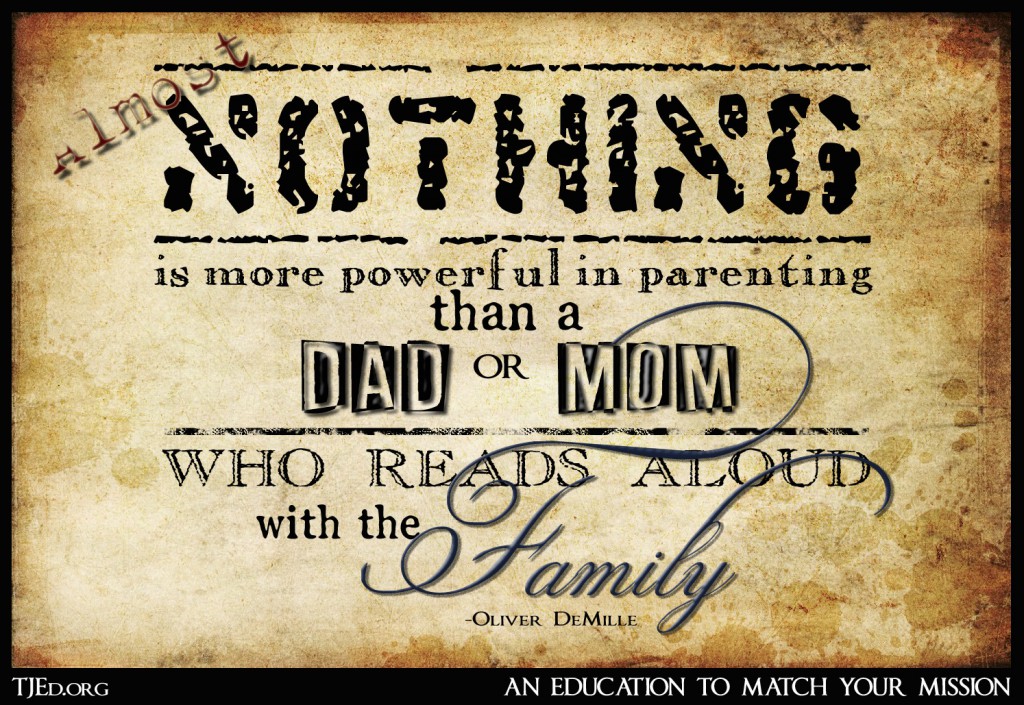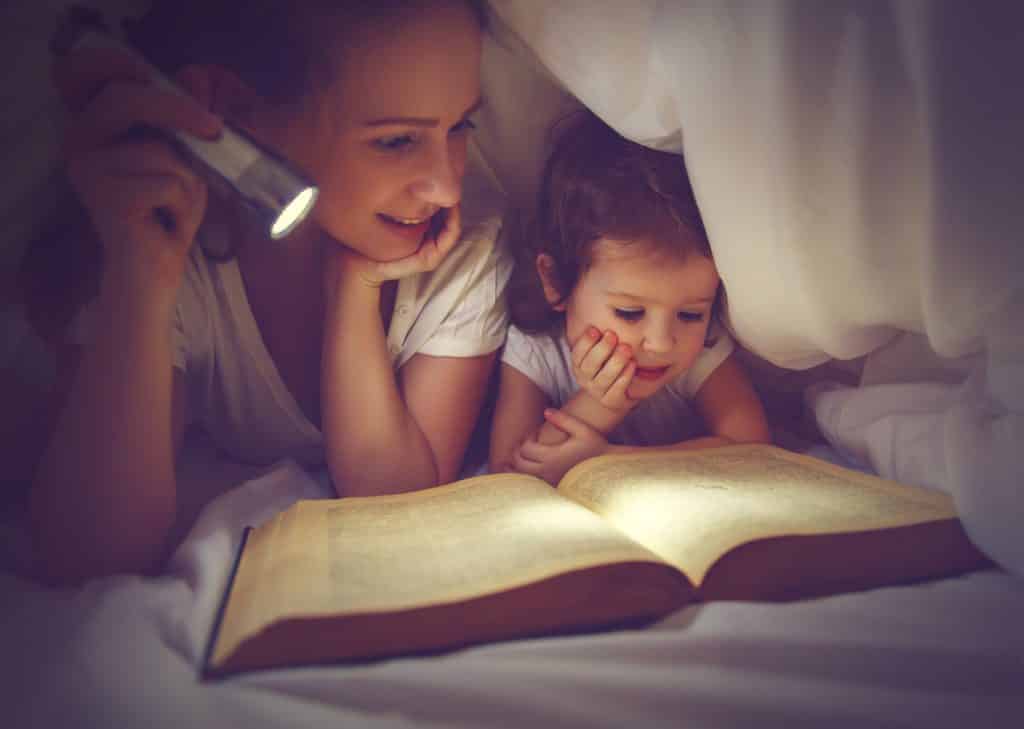Allan Bloom wrote in The Closing of the American Mind:
“People sup together, play together, travel together, but they do not think together. Hardly any homes have any intellectual life whatsoever, let alone one that informs the vital interests of life. Educational TV marks the high tide for family intellectual life.”
The great solution to the closing of the American mind, and any other mind, is reading together as a family.
 When parents, youth and children sit together and read through a book, especially an important or great book, something happens deep within all who participate.
When parents, youth and children sit together and read through a book, especially an important or great book, something happens deep within all who participate.
If the parents frequently stop reading and openly discuss what is being learned, ask questions, and listen as well as share their thoughts, the thinking is often literally profound.
Youth naturally learn from adults in this setting, and the children learn from the youth.
As mentioned, the adults learn a great deal from the children—as any parent who has consistently read with the family can attest.
The youth are surprisingly open to listening to adults in this environment.
In fact, this educational setting is nearly a cure-all for family education dysfunction—and it often addresses non-educational challenges as well.
Unfortunately, this type of learning is much too infrequent in the modern world.
But it is so simple! Set a time and read something together as a family every day or nearly every day. Discuss as much as you read, and gently invite everyone to participate.
Keep at it year after year. If busy times result in you dropping the habit for a time, resume it when you realize how much your family misses and needs it.
You don’t have to be perfect on this, just keep trying. It will literally upgrade everything about your family’s educational success—and it will have a lot of other positive consequences as well.
If I had to pick the Key of Keys, the Keystone of the entire TJEd model, this would be it: reading and discussing great books as a family.
Andrew Pudewa has outlined many reasons that this is so powerful for the future academics of each member of the family. We have found that it is also the most important part of our family’s emotional and relationship development.
I can’t imagine trying to raise or educate young people without this.

Family reading bedtime. Mom and child daughter reading a book with a flashlight under the blanket in bed
Literature and history is replete with teachers and students who read a great work and then discuss it in depth and detail. For example, the stories of Plutarch were widely used in the American founding—and formed many of the source materials for comparisons, contrasts, arguments and ideals in early American writing.
Likewise, Shakespeare pulled from many of the Greek and other historical poets and playwrights, just as educated people in our day use references from the great writers, artists, scientists, leaders and statesmen of history. E.D. Hirsch argued in his bestseller Cultural Literacy that to be ignorant of the great stories and commentaries from the classics is to be uneducated.
While most people today still agree that reading is part of great education, the idea of discussing what we read with each other, at home and in the workplace as well as in schools, is in decline.
Without deep and detailed discussion about important things, education is mere training at best and frequently just plain shallow.
The greatest books are a key of great education, but great discussions are the key of keys.
Parents hold most of the power in this—the classics are on the shelves, and there are couches and chairs in the living room.
All that is needed is for families to sit with the books, read and discuss.
Then repeat several days a week. This is the key of keys to leadership education.



































Leave A Comment